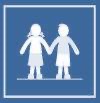Curriculum
Intent
At Winterton House we recognise the importance of providing a positive start to a child’s early years and that developing secure and strong relationships with children and their families in an environment where they feel confident and safe. We aim to provide a curriculum that underpins future learning by recognising children’s individual needs, interests in an enriched and stimulating environment that encourages creativity and a love for learning. We prioritise communication and language and personal, social and emotional development within our curriculum and have high expectations for all our children. All children attending Winterton house are important individuals whose needs will vary according to their abilities and personalities. Our curriculum is the cultural capital we know our children need so that they can gain the knowledge, skills and understanding they require when they move on to the next phase of education.
Implementation
At Winterton House we follow the Statutory Framework for the Early Years Foundation Stage and Development Matters. The curriculum for Early Years is organised into 7 areas of learning. There are Prime and Specific areas. All areas of learning and development are important and inter-connected. The Prime areas are crucial for engaging and promoting children’s curiosity and enthusiasm for learning, for building their capacity to form relationships and thrive. The Prime areas are strengthened and applied through the Specific areas.
We implement this curriculum through the four guiding principles:
- Unique child;
- Positive relationships;
- Enabling environments with teaching and support from adults;
- Learning and development.
When children join Winterton House we complete an All About me with parents on Tapestry. This gives us a developing picture of the child across the prime areas of the EYFS, their likes and dislikes, their particular interests and to listen and share valuable information from parents. Over the following weeks we take time to get to know children, observe them in play and interactions and reflect on that child’s individual learning and development. Our next steps are focussed and individualistic, they are discussed regularly as a team and added to tapestry so parents can support and work towards these at home. Many of our parents add their own observations to tapestry and these further support us in developing children’s learning. Practitioners quickly identify areas of concern and work with parents and outside professionals to provide support and person-centred planning that is responsive to children’s individual needs.
Alongside the curriculum we focus on ‘how children learn’ and this is assessed through The Characteristics of Learning and these are developed through:
- Playing and exploring (being curious and asking questions) so that children become engaged. They have opportunities to find out and explore, play with what they know and develop the confidence to ‘have a go’.
- Active learning so that children are motivated. They learn to become involved, concentrate, keep trying (be resilient) and enjoy achieving.
- Creating and thinking critically so that they have their own ideas, can make links in learning and can choose ways of doing things.
Learning takes place through a range of child initiated and adult led activities learning for our children both indoors and outdoors. We place a high emphasis on outdoor learning, many of our children live in overcrowded housing with little or no access to an outdoor space. We ensure the content of the curriculum is differentiated to meet the needs of all learners and is taught in a logical progression so that children build on prior learning. We use Birth to 5 matters and development matters as our curriculum guidance. We believe learning through play is vital, we use the environment to ensure the children’s needs are met through continuous provision, enhanced provision and following their interests.
The EYFS curriculum consists of seven areas of learning and development:
3 prime area
- Communication and Language
- Personal, Social and Emotional Development
- Physical Development
- Literacy
- Mathematics
- Understanding the World
- Expressive Arts and Design
Impact
Our broad and balanced curriculum design ensures that the needs of individual children including those with EAL, SEND and disadvantaged, can be met within the environment of high-quality teaching supported by targeted interventions where appropriate. In this way it can be seen to be impacting in a very positive way on children’s outcomes. We complete 2 years reviews for all the children in our toddler room and these are shared and discussed with parents. We endeavour for children to be ready for their next phase of education and we work closely with our local schools to ensure a smooth transition. Every member of staff uses ongoing observation and assessment to identify children’s starting points and plan experiences which ensure progress. We have termly parent/Key person meetings where we discuss children’s progress with parents. It’s an opportunity for parents to discuss observations, learning from home and talk about any concerns they may have.
We are fortunate to have time reflect on practice, provision and children’s learning. We have dedicated team focus time each week where we discuss our children with SEND, we look at their person-centred planning and discuss progress, strategies and reflect on things that are going well and areas that may need further targeted support or additional referrals. Staff embrace new ideas that will further support our children and as a setting we have now been trained to deliver a number of key support programmes in the setting. E.g. attention tower hamlets (bucket time), intensive interaction, signalong and ETHCAT (Every tower hamlets child a talker) Our curriculum and its delivery ensure that children make good progress. Their individual identity is valued, and our children are kind and caring while also aspiring to be the best that they can be.

